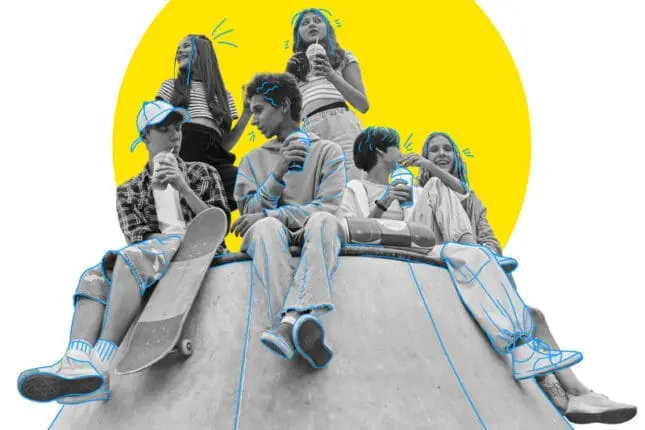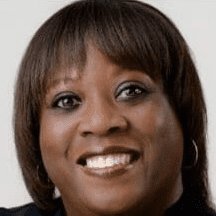Kay walked into my office dressed in a baggy hoodie, light-wash jeans, and clunky sneakers. She slumped into my office sofa with a soft thud and sighed. I’d seen many clients like Kay over the years: teens who are withdrawn, searching for their tribe of peers, seeking independence from their parents, spending lots of time online and on social media, and cautiously looking forward to the next stage of life at college. And like so many of these teens, Kay was suffering immensely.
Two months earlier, when her previous therapist had called to refer her to me, he’d told me about her recent psychiatric hospitalization and her history of self-harm by cutting. “I’ve taken Kay as far as I can,” he’d said. “Our work keeps stalling. I think she just needs someone new.”
Kay’s chart showed that she’d tried several different therapy formats: group, individual, and DBT. She’d worked with many skilled clinicians, too. Despite it all, Kay was still hurting. Over the phone, her parents had listed the trail of diagnoses that had accumulated in the wake of her treatments: ADHD, depression, anxiety, and mood disorder. I suspected these diagnoses were attempts at explaining why Kay was feeling the way she was. But something was missing.
“My friends bailed on me again,” Kay said forlornly when I asked her about the week. “We had plans to see the new Transformers movie, but then everyone said they were busy. I know I must have done something wrong, I just don’t know what.” Tears formed at the corners of her eyes.
“I see you, Kay,” I whispered. “Would you like to share what’s happening for you right now, in this moment?”
She shot me a reflexive look of mistrust, then paused. “I don’t know….” she said, her voice catching in her throat. “It feels like I’m in an abyss. Just living is so draining for me. And everyone else is doing it so easily.” Kay swallowed then dropped a question I hear a lot from my teen clients these days: “Do you think I might be Autistic?”
The New Autism
Over the last several years, whenever I’ve met up with fellow therapists, one topic comes up again and again: neurodivergence. Obviously, the thinking around autism today is very different than it was just a few years ago. A huge range of thinking and behavior now falls under the umbrella of neurodivergence. It can be hard to keep up.
But there’s something else that comes up in these conversations: across the board, those of us who work with teenagers hear more and more of them saying they feel like they’re Autistic. And they want to feel seen and heard as members of the neurodivergent community. This can be a tricky thing to unpack, especially since most of us aren’t experts on the subject. How do you respond when a client like Kay asks you such a direct question—one where the answer is invariably complex?
Today’s teenagers have spent considerable time researching autism online, scrolling through social media, and chatting on Discord with neurodivergent peers who’ve experienced similar life challenges to them. They see reflections of themselves in these new friends. And finally, after so much time feeling misunderstood, they feel like they can let their guard down, like they belong—which can bring them a tremendous amount of relief. But that’s not where the work stops. It’s just the beginning—for them, of course, but also for the adults in their lives struggling to keep up with what their kids seem to have figured out.
The fact is, when we work with teenagers, we’re also working with their parents in some capacity, and many parents are concerned about how society will regard their child once they’ve been labeled “Autistic.” They’ve consulted with multiple professionals and been given many recommendations about “managing” their teen’s behavior. They want reassurance, answers, a calmer baseline at home, but there’s no pat, simple solution to the challenges neurodivergent kids like Kay face. Even when kids find solace in a neurodivergent identity or community, the pressures and biases of a society shaped around neurotypical needs are constant and unavoidable. Our job as therapists is to educate ourselves, so we can better support and advocate for these teens, as well as help their parents, teachers, and others support and advocate for them, too.
Though some parents initially express shock at hearing their child believes they’re Autistic, I’ve found that once the shock subsides, parents want to learn more. Eventually, they may even whisper things like, “Actually, I’m kind of like that, too,” or “This reminds me of how my mother was.” We can make it clear that neurodivergence isn’t something to be feared. It’s an aspect of a person’s identity that can allow them to make sense of who they are.
Digging Deeper
Before answering Kay’s question, I thought back on the work we’d done so far. Had Kay shown any signs of being Autistic?
I’d learned from Kay that she has lots of friends, but she seemed to cycle through new friendships every few months; and each time one ended, was left with a crushing sense that she’d said or done something to end them. Kay is highly intuitive. She feels energetic shifts between herself and others acutely—which I see in our sessions a lot—but she’s often unable to articulate these emotional experiences. Over the weeks we’d worked together, she’d told me stories of excessive texting and ruminating over her social missteps. “I feel like I’m constantly overthinking every exchange,” she’d said at one point. In the past, this had led to cutting and thoughts of suicide.
Kay is very bright—gifted, even—though her performance in school doesn’t always reflect this. According to her parents, she doesn’t “try hard enough” and spends too much time alone in her room scrolling on her phone.
“After school, I’m totally exhausted,” Kay explained. “I feel spent, like my body’s been hit by a train. It won’t move.” It was clear that Kay enjoyed learning, but procrastinated on assignments that didn’t immediately grab her attention, and when she’d finally get around to them, she was short on time, which was paralyzing and stressful.
“I know I should go to college,” she had said one time. “But I don’t know if I can handle it.” Do you think I might be Autistic? Kay’s question hung in the air as I deliberated for a moment. I could see the trepidation on her face—an expression that seemed to be asking, “Do you see me?”
I smiled. “What do you think, Kay? I’m sure you’ve done your research, and I’d love to hear your take first.”
Kay’s eyes lit up. “I started reading some kids’ stories on a Reddit message board about finding out you’re Autistic,” she said. “When I read their stories, I was like, Hey, that’s me! And when I told them what I was like, and all the stuff I worry about and do to keep from collapsing every day, it felt like they got me. They were cool and weird, and it got me thinking about all this autism stuff.”
I’ve worked with enough young adults to know Kay wasn’t really looking to understand the official diagnostic criteria for autism. She was looking for validation. She was looking to see that I cared.
Our Mission
I’ve been in too many consultation groups with therapists who’ve said things like, “I’ve ruled out autism because my client doesn’t act Autistic,” or “My client makes eye contact and wants friends, so I strongly doubt they’re neurodivergent,” or “They’ve had multiple neuropsych tests and never came back with a formal diagnosis.” Each of these statements shows outdated thinking or bias around autism.
Getting up-to-date training on neurodivergence is critical to supporting all our clients in living full, authentic lives. The truth is, you’ve likely been working with Autistic clients all along—they’ve just been undiagnosed. And maybe you always sensed there was more going on than just depression, anxiety, or whatever other diagnoses they’d been given. Our clients are the experts on their own experiences, but we can help them better understand their strengths and challenges so they can better navigate a world that defaults to neurotypicality.
Jamell White
Jamell White, PhD, LCSW-C, has a background in clinical social work, special education, and human development, and specializes in working with autistic children, adolescents and adults. She has over 20 years of clinical experience.













